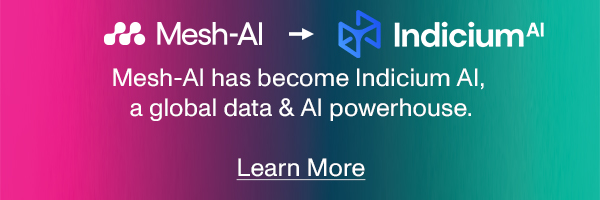


In the ever-evolving landscape of financial markets, precision is not just a luxury but a necessity. This isn’t news to the Norwegian sovereign wealth fund, which lost a staggering $92 million due to a seemingly innocuous Excel error serves as a stark reminder of the dire consequences poor data governance can unleash. The error, a simple case of entering December 1st instead of November 1st in a massive spreadsheet, not only doubled the operational-accidental losses from 2010-20 but also shed light on the hidden costs of disparate data and the urgent need for a modern approach to data management.
While Excel has long been the go-to tool for businesses, the Norwegian sovereign wealth fund incident underscores the risks associated with relying solely on spreadsheets and legacy systems. Beyond the obvious financial toll, the cost in resources and time spent unravelling data discrepancies and fixing errors can be debilitating. It's high time for large organisations to rethink their data strategy, treating data as a product in itself and implementing robust governance rules.
We’ve helped enterprises across financial services and energy sectors reimagine their data governance to decrease risks, save money and unlock new opportunities.
We helped an energy & utilities enterprise to move away from manual processes and bottlenecks which resulted in reporting errors. We introduced tighter controls and policies accompanied by a modern cloud-based data stack to increase accessibility to integral data, allowing the enterprise to save millions in potential fines and power the business’ transition to net zero.
Key to mitigating these human-based risks is recognising the critical importance of increasing data literacy within organisations. Employees across departments must be equipped with the skills to understand, interpret, and manage data effectively. A modern data approach, where business domains are tasked with owning the data they produce, can help upskill an organisation’s workforce. Increased data literacy can significantly reduce errors, ensuring that data is accurately input and interpreted, thus averting catastrophic financial losses.
However, data governance is not just about literacy; it's about adopting a more modern and comprehensive approach. Large organisations, irrespective of their industry or size, need to embrace a paradigm shift, treating data as a valuable asset rather than a mere byproduct. This necessitates setting strong governance rules that govern the entire data lifecycle – from collection and storage to analysis and reporting.

Enterprises can take different paths to modernise their data governance, depending on their unique needs and structures. One effective approach is adopting a federated data governance model. Unlike traditional centralised governance, where decision-making is concentrated at the top, a federated approach distributes governance responsibilities across different departments or business units.
Federated data governance achieves scale by involving various stakeholders in the governance process, breaking down silos, and promoting collaboration. It acknowledges that different parts of an organisation may have unique data needs and expertise, making it a more flexible and responsive system. This approach can significantly minimise errors by allowing experts in each domain to govern their data while maintaining overall consistency and compliance with organisational standards. This not only allows organisations to remain agile but also ensures independence, autonomy, and accountability at every level.
For instance, finance teams can govern financial data, marketing teams can govern customer-related data, and so on. This distributed responsibility not only reduces the likelihood of errors but also ensures that those closest to the data are empowered to make informed decisions.
The Norwegian sovereign wealth fund incident should serve as a wake-up call for large organisations to reevaluate their data governance practices. Treating data as a product, investing in data literacy, and adopting a modernised, federated data governance approach can prevent similar costly errors. It's time to break free from the limitations of spreadsheets and legacy systems and usher in a new era where data is a strategic asset, safeguarded by robust governance rules. By doing so, organisations can not only protect their financial interests but also optimise resources and time, fostering a culture of data-driven excellence.
